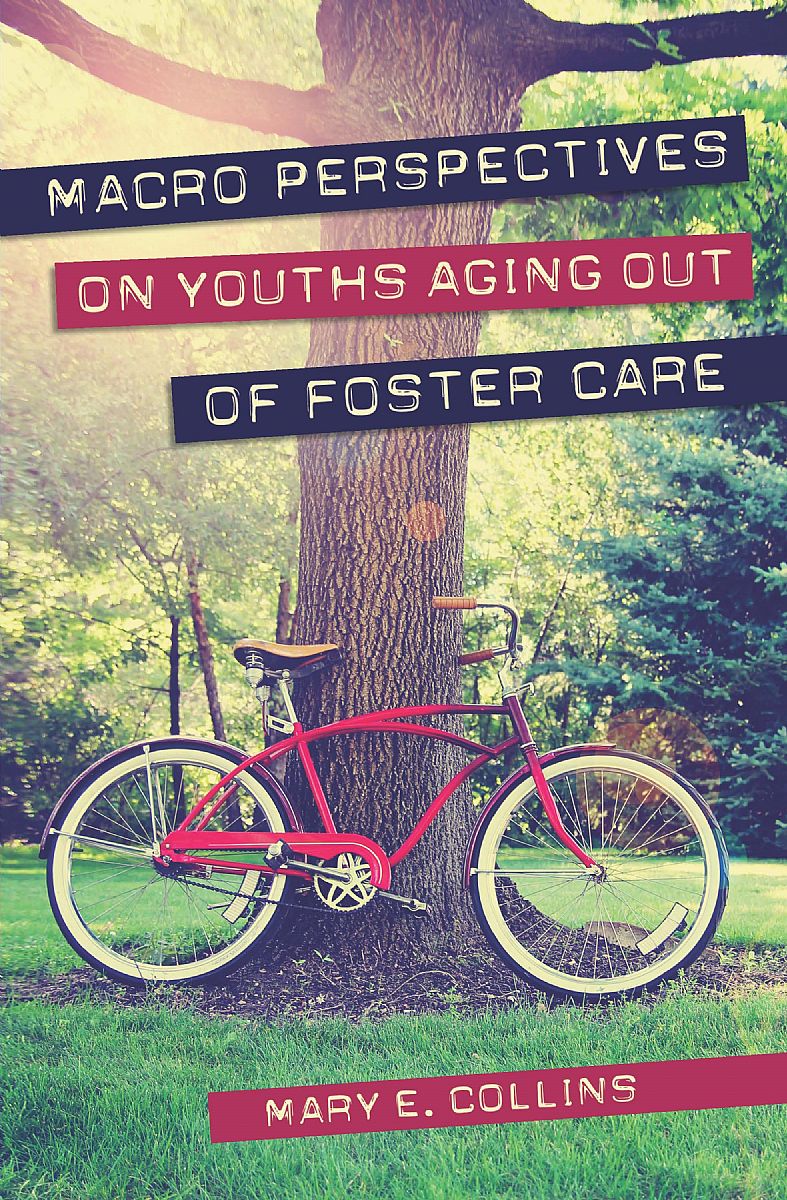
Macro Perspectives on Youths Aging Out of Foster Care
Author: Mary E. Collins
Page Count: 224
ISBN: 978-0-87101-488-7
Published: 2015
Item Number: 4887
$46.99 – $49.99Price range: $46.99 through $49.99
NASW members receive 10% discount on books and eBooks by entering their membership number at checkout.
Can your device download this eBook? Click here before purchasing! eBooks are available in single quantities only.
Earn 6.5 CEUs for reading this title! For more information, visit the Social Work Online CE Institute.
For the past 20 years, there has been increased attention to the circumstances under which young adults leave the foster care system when they achieve age-defined adulthood. In the United States, this is referred to as “aging out” of foster care. Typically, these young people did not benefit from a reunification with their family or a permanent family situation with kin or through adoption.
Macro Perspectives on Youths Aging Out of Foster Care offers an extensive look at the issue through a “macro orientation.” Attempting to balance the primary focus on micro-systems, and consistent with a social work perspective, this book aims to provide a greater emphasis on the larger macro systems of society, policy, organization, and community. Successful or unsuccessful outcomes of the transition from foster care are heavily dependent on the processes and structures that make up the external environment. Youths exiting foster care may be especially influenced by the circumstances of the larger social context because they often lack the mediating advantages of a strong familial connection. After long stays in the foster care system, they may have limited support, skills, and resources required for a healthy, productive, independent adulthood.
This reorientation of focus to macro systems affecting the individual transition experience informs questions such as: What are the barriers to developing and implementing effective approaches How can we bring more social attention to these youths How might communities better support youths To what extent should policy and program supports be designed specifically for this population, as opposed to a more expansive population of vulnerable youths (such as youths receiving child welfare services in their homes, or youths involved in more than one service system), or more general universal supports for all youths Macro Perspectives on Youths Aging Out of Foster Care draws on research, theory, and practice to address these issues. The book is a useful resource for practitioners in child welfare and youth services, researchers, and policy makers.
About the Author
Acknowledgments
Chapter 1: Key Issues Confronting Youths Transitioning Out of Foster Care
PART I: Foundations in Research and Theory
Chapter 2: Young People Leaving Foster Care: Common Traits and Outcomes
Chapter 3: Sociological Perspectives on Youth and Young Adulthood
Chapter 4: Political Perspectives on Youth and Young Adulthood
PART II: Fundamentals of Policy
Chapter 5: Policies Related to Leaving Care, Child Welfare in General, and Other Social Welfare Issues
Chapter 6: Agenda-Setting and Policy Formation: Framing Problems and Populations
Chapter 7: Issues in Policy Implementation
PART III: Furthering Best Practice
Chapter 8: Developing a Workforce to Assist Transition-Age Youths
Chapter 9: Developing Community-Based Supports
Chapter 10: Programs and Evaluation
Chapter 11: Conclusion
References
Index
Mary Elizabeth Collins, PhD, is professor and department chair (Human Behavior, Research, and Policy) at Boston University School of Social Work, where she has been a faculty member since 1997 and held several administrative positions: associate dean for academic affairs (2014–2018), director of the dual-degree program with theology (2016–2018), and director of the PhD program (2003–2009).
Collins is an internationally recognized expert on youth transitioning from foster care to adulthood. Her research program focuses on vulnerable young people, the systemic inequities they face, and the policy and program support that can facilitate a positive life trajectory. Currently, she is researching the employment and training systems available to vulnerable youth, including the opportunities for young people to have voice in policy decisions. Throughout her research career, she has mentored numerous early and mid-career scholars and PhD and MSW students from diverse backgrounds.
Collins is the author of over 100 published articles and chapters. Additionally, she engages in occasional and strategic public scholarship in relevant media regarding needed improvements in child welfare, promoting more compassionate public policy and, most recently, policy support for vulnerable populations in the context of COVID-19. Collins has been principal investigator of studies funded by government agencies, private foundations, and other entities. In 2011–2012, she was a Fulbright Scholar in Vietnam, and in 2023, she was a Fulbright Specialist in Ghana. She has also been a visiting scholar in Northern Ireland, Switzerland, and Ethiopia, and continues to collaborate with scholars in these countries.
Within the Society for Social Work and Research, she served as vice president and conference program chair in 2023. She served the Council on Social Work Education as a member of the Council on Leadership Development (2016–2019) and the Commission on Global Education (2012–2015), and the Group for the Advancement of Doctoral Education in Social Work as a steering committee member (2006–2010). She was also chair of the Program Planning Subcommittee for the 15th National Conference on Child Abuse/Neglect (2004–2005).
Collins received her AM and PhD from University of Chicago School of Social Service Administration and her BA from University of Illinois at Chicago.
